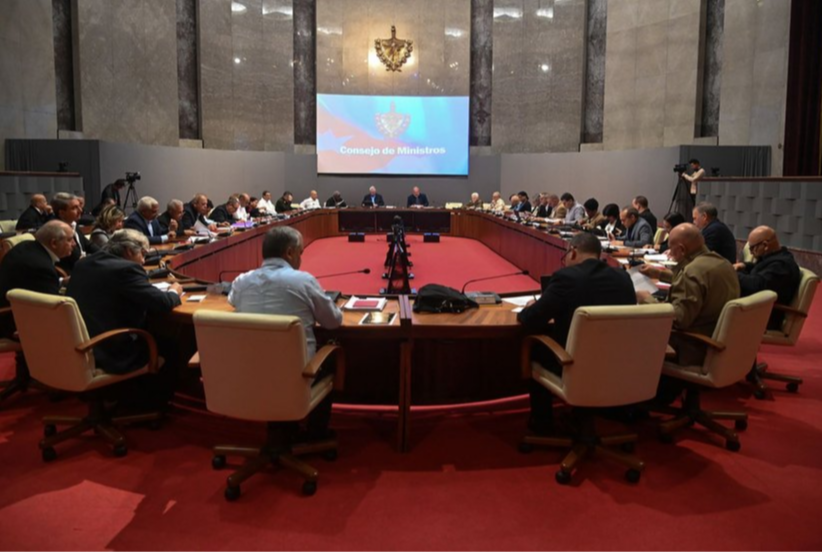
Photo: Revolution Studies
Havana, December 30 (RHC) -- The meeting of the Council of Ministers for the month of December was held. Among other topics, the Government Objectives and Projections for 2025 were approved, as well as the Government Work System for the coming year.
"In everything we do, the first thing to consider is how the people will participate: participation is what brings unity," stated the First Secretary of the Central Committee of the Communist Party and President of the Republic, Miguel Díaz-Canel Bermúdez, at the December meeting of the Council of Ministers; a meeting that set guidelines for the government's actions in the upcoming calendar year.
In whatever we do not foresee how the people will participate, it remains in the structures or in the superstructure, emphasized the Head of State, then insisting on the essential need to "seek a projection towards participation, because in that commitment and in that participation lies an important basis of unity."
"In fundamental issues, those that are most impacting the population and the country's development, we must be able to identify which projects can be enhanced; if they exist, how we improve them; and if they do not exist, how we conceive new projects," emphasized the leader in the meeting, which was led by the member of the Political Bureau and Prime Minister, Manuel Marrero Cruz.
And to achieve that purpose, he reiterated, "we have to work hard, we have to demand a lot, we have to analyze a lot; there are things that cannot be allowed to accumulate, we have to work on projects, on programs, with integrity; we have to organize the things that have the most impact."
Life has shown us –reflected the Head of State– that "it can indeed be achieved, we just need to work in unity."
Specifically, on the first item on the meeting's agenda, from which his reflections stemmed, President Díaz-Canel considered it "very useful that when we are finishing the year, in the last Council of Ministers, a government system based on priorities, which are precisely the objectives approved for the strategy on how to overcome distortions and relaunch the economy, is already conceived as part of work planning."
With special emphasis, he referred to several aspects that cannot be overlooked on that path, such as the proper control of what has been designed, which is closely related to the approved Economic Plan and State Budget, which he insisted, "is the minimum to achieve."
"In that Plan and in that Budget, there are potentialities, and we must go out and combat those potentialities, we must go out and fight for them, we must go out and find them," emphasized the leader.
We have priorities, objectives, and indicators that guide our work, President Díaz-Canel recalled, and we need to "conduct analyses that interrelate the behavior of the indicators, and how that analysis guides us on where we need to take action, what paths we need to take, what things need to be unlocked."
Among other issues that must inevitably become work priorities for 2025, he referred to the care of retirees and those with pensions and minimum wages, because we must be able, even if not completely, to start improving the situation of retirees, who have given "their lives for the Revolution, and today are in a very complex situation," and begin "taking steps to alleviate those situations."
In his words, he also referred to the three pillars of the Party and Government's management, which, he said, "cannot be pillars for discourse; they must be made concrete."
"Let no one speak of science and innovation if they have not done anything to achieve innovation," he argued, referring to the first pillar, because "we need to fully understand that innovation is a necessity for a country like ours."
Specifically regarding digital transformation, he emphasized the priority with which it should begin to be demonstrated how it is put into practice with concrete examples.
Regarding the third of those pillars, that of political, institutional, and social communication, he noted that "it is a pending subject, and we already know what happens when we do not communicate in a timely and comprehensive manner; all the misunderstandings that are created, all that the enemy takes advantage of." We don't always realize, he insisted, that today it is one of the trenches from which the Revolution is defended.

